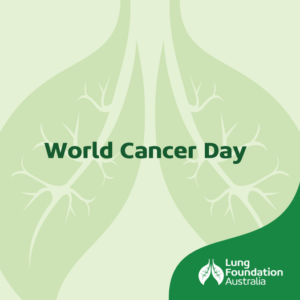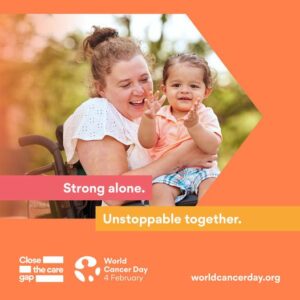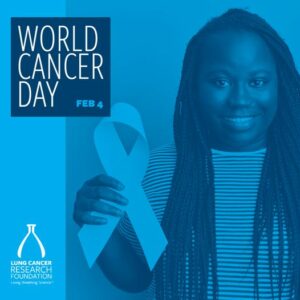
On World Cancer Day we at the GLCC renew our mission pledge – to stand shoulder to shoulder with all affected by lung cancer.
As the global ‘voice’ of people with lung cancer, we remain committed to improving outcomes for all.
We aim to place lung cancer on the global health agenda, to lessen the stigma and misconceptions that can surround the disease, to empower those with lung cancer and their loved ones to engage in an active role in their care process, and to effect change in legal and regulatory policies to improve treatment and care for all.
Our resources are free to use and available to all who are striving to improve the lives of people with lung cancer.
May we wish all engaged in care, whether giving or receiving it, a healthy World Cancer Day. We also remember all those whose lives have been taken by all forms of cancer. Together with colleagues across the world, we are working to lessen the impact of lung cancer and promote better outcomes.
Our member organisations worldwide all contribute in their unique ways to this mission.
To mark World Cancer Day, here is an example of real-world progress:
From the University of Liverpool, UK:
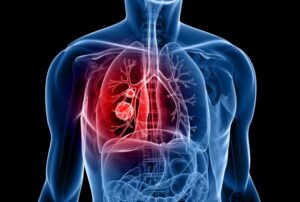
Pioneering research led by the University of Liverpool has contributed to new government recommendations for a national lung cancer screening programme.
The UK National Screening Committee has recommended the introduction of targeted screening for 55 to 74-year-olds with a history of smoking who are at higher risk of lung cancer.
Lung cancer is Britain’s most common cause of cancer death, with smoking the most common cause. Although late-stage lung cancer has a poor prognosis, early-stage cancer can be successfully treated with a good clinical outcome if diagnosed early.
Over the past three decades, Liverpool has played an essential role in establishing the potential of lung cancer screening for early diagnosis in the UK.
In 1993, the Roy Castle Lung Cancer Foundation awarded a grant to Professor John Field to study genetic changes in lung cancer. This work formed the basis for the Liverpool Lung Project (LLP) and the development of the LLP risk model to help identify individuals at high risk of developing lung cancer.
Roy Castle Lung Cancer Foundation continues to fund research projects, and a research fellowship to enable scientists to expand their skill-set and develop their potential.
This fellowship is a key part of the support the charity provides to developing better understanding of lung cancer, treatments, routes to diagnosis, care pathways and improving the patient experience.
From RoyCastle.org:
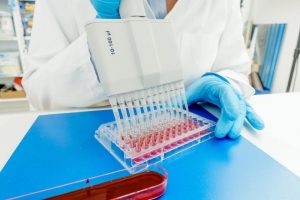
Lung cancer research has been at the core of our charity since the day it was founded. Professor Ray Donnelly started the foundation because no one would invest in lung cancer research and, for the past 33 years, we have remained as focused and as committed to research as ever.
This is why we are delighted to announce our latest commitment to lung cancer research with the James Brokenshire Lung Cancer Research Fellowship.
In memory of James, and a celebration of our shared dedication to improving outcomes for lung cancer, the James Brokenshire Lung Cancer Research Fellowship will help develop the next generation of lung cancer researchers who may hold the key to improving long term survival of the world’s biggest cancer killer.
The fellowship will be kindly funded by Cathy Brokenshire, with support from family, friends and colleagues.
In Canada, from Lung Health Foundation:

